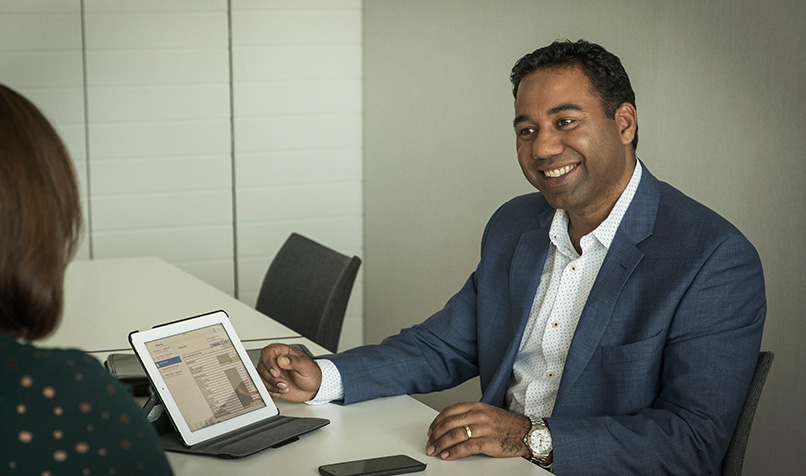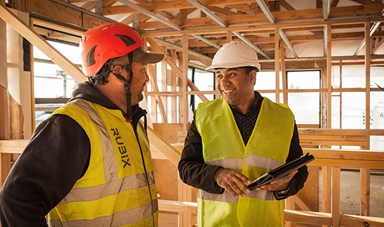Loading component...
At a glance
There’s a strong element of pride in Saurav Wadhwa’s voice as he recounts how he went about setting up his independent public practice in Auckland five years ago.
From a standing start in 2013, with no clients and working out of a front room in his then rented family home, Wadhwa’s business, IBBZ Accounting, has evolved into an award-winning, multi-disciplined public practice that delivers tax and accounting solutions to hundreds of clients around New Zealand and overseas.
His journey towards setting up his own public practice started well before he officially opened his doors for business, and that’s one of the most valuable lessons Wadhwa has for anyone wanting to go it alone: Before one can start properly building up a practice, it’s essential to have strong foundations.
That includes having the ambition, passion and dedication to start up and run a business in the first place.
“I think the key part would be that you need to put your heart and mind into it, like really believe in it,” Wadhwa says. “Once you’re 100 per cent focused on this part, then things are much easier.”
He adds that it’s also important to plan ahead, and to have everything in place for your practice before opening for business. First impressions count.
Beyond the registration of a business name, that includes organising the basics such as creating a business logo and cards, and building a professional website. Don’t open for business until the foundations are ready.
Seek professional guidance
Wadhwa says a very useful early step was to utilise the training and development resources available through CPA Australia.
He attended a two-day conference on running an accounting practice, which also afforded him the opportunity to meet representatives from other practices and learn from them.
“It’s good to have role models, to witness the industry trends, and in the back of my mind I knew that this was where I wanted to end up in five to 10 years.”
Keep to your budget
Wadhwa says that it’s very easy to spend money when starting up a practice, but the trick is to only spend on essentials until there is enough business income to justify the cost.
“Don’t blow up on your budget and keep your overheads low. That’s what I followed.”
That included saving on business rent by working from his home and avoiding buying equipment until such time as not having it would be detrimental to business growth.
"... it’s also important to plan ahead, and to have everything in place for your practice before opening for business. First impressions count."
“For example, we needed an EFTPOS machine terminal for the office, but that costs about A$100 to A$250 a month. But when I had to turn a few people away because we didn’t have a terminal, I then saw the need.
“Now multiple payments come through EFTPOS, so we don’t have to chase clients for payments.”
Wadhwa says he has had a dedicated budget for advertising right from the beginning, and that has really paid off in terms of bringing in new business leads.
“Advertising brings in money and business … you have to pay to get leads coming in.”
Buy, don’t lease
While it may be a financial stretch at the beginning, Wadhwa says his philosophy is to buy assets rather than borrow to have them.
Having worked from home at the start, his first major step was to buy a building when he had enough money saved up.
“Rent can kill any new business, but when you have the ownership of a building you can give yourself a loan from the business profits. So, even today, I believe in having ownership.
“I know some accountants might not agree with me, but all ownership – motor vehicles, printers, the phone system, anything – it’s all owned outright.”
Bring your vision and values to your public practice

Wadhwa now has five accountants working for him, providing a range of specialised tax and accounting services for businesses, individuals, trusts and not-for-profit organisations.
He says having a vision for your practice is an essential ingredient for growth, and central to this is setting the core values that the practice and all its staff will adhere to when servicing clients.
“As far as starting up your own business, it’s a great way of really putting your own stamp on how you want to run the business,” he notes.
“Our values include open communication and honesty with our clients. We also believe in helping our clients, and sometimes we do work for a lower rate or sometimes for free.”
Don’t compete – create instead
Rather than trying to compete with other firms on price, Wadhwa says innovation is more important because this enables the practice to open up new revenue streams where there is little or no competition.
He gives the example of IBBZ creating an online portal that enables anyone searching for tax advisory information in New Zealand to access a library of articles. Doing so has created a strong sales funnel for his business, which he estimates generates an extra NZ$3000 a week in revenue.
“About 2000 people come there every week from all over the world, the majority from New Zealand. Some then contact us for tax advisory information if they have any questions, and that’s how we get business. This is something where we’re not trying to compete with anyone. Create, don’t compete.”

